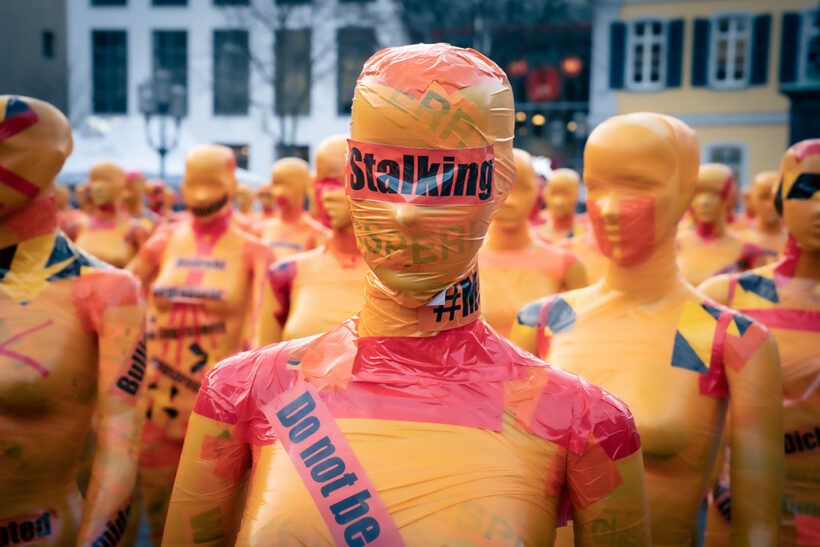National Domestic Violence Awareness and Prevention Month in the USA: a time to educate and take collective action
On the afternoon of 4 October, mobile phones across the United States buzzed or beeped simultaneously to test the national emergency alert system. Some media outlets educated the public about the upcoming drill and offered a warning to victims of domestic violence: “if you are a victim of domestic violence and have a hidden phone in the house that your abuser does not know about, silence it before the drill”. It was disturbing to hear that warning, to become aware of how a simple emergency preparedness test could worsen the real and ongoing emergency situation that many people live in.
Violence against women is a global scourge that affects people of all races, social classes, nationalities, political and religious affiliations. The term “intimate partner violence” is a synonym to describe this problem, but recognises that there are also male and non-binary gender victims. It is important to note that intimate partner violence is preventable. October is National Domestic Violence Awareness and Prevention Month in the United States, a time to educate and take collective action to curb this pandemic that too often remains hidden.
Tracy McCarter’s story painfully captures the devastating impact of domestic violence. In an award-winning essay published in the news outlet Truthout, McCarter bravely recounts her ordeal and describes the chain of catastrophes she experienced as a result of the abusive behaviour of her estranged husband.
Speaking to Democracy Now! Tracy said: “In March 2020, I was living apart from my husband. He had slipped back into drinking and was spilling out and getting violent. And when he drank, that violence manifested itself in assaults including choking. As a nurse, I knew exactly how dangerous choking is for anyone. It is considered to be one of the most dangerous forms of assault that a victim of domestic violence can suffer.
Despite the fact that they were separated, Tracy’s husband repeatedly came to their front door drunk. He harassed her and her neighbours to the point that she ended up at risk of being evicted from her home: “I felt desperate, because if I wanted to find a way to escape him for good, I had to help him.
Then, on 2 March 2020, Tracy let her husband into her home, despite his drunkenness. This decision would eventually lead to her husband’s death.
“He started telling me, ‘Give me money. Give me money. I wasn’t going to give him money to keep drinking,” Tracy continued. “He then proceeded to assault me in a variety of ways, including attempted strangulation […] I grabbed a knife […], because I thought it would scare him and get him to leave my flat. […] When he was coming [back] towards me, he stumbled. […] When he tripped, he stabbed himself with the knife that I was holding to protect myself, because I had the right to defend myself. The wound he received turned out to be very serious.
Tracy called the emergency phone and did what nurses are trained to do: apply pressure to the wound.
“The police came into my flat and then EMS personnel came in,” Tracy said, continuing, “I was forced to stop my attempt to save his life, handcuffed and watched as the police attempted to perform CPR on my husband without applying pressure to the wound. I was forced to watch as he bled out even faster than before. They wouldn’t hear me when I tried to tell them how to save his life.
Tracy McCarter was charged with second-degree murder and transferred to New York’s notorious Rikers Island jail. She was denied bail and languished there for seven months while the COVID-19 pandemic ravaged the prison complex. McCarter was finally released on an electronic monitoring anklet. At the time of her arrest, Tracy was a graduate student at Columbia University. The university suspended her, for “gender-based misconduct” no less. She lost her work and was unable to get another job because she had to select the option on the application forms that indicated she had a pending felony conviction.
The grassroots organisation Survived and Punished spearheaded a solidarity campaign under the slogan “I stand with Tracy”. The slogan, which became a hashtag, was shared on social media by several candidates for Manhattan district attorney, including Alvin Bragg, who ended up winning the race for the position. Although it took a year, Bragg finally dropped the charges against Tracy McCarter.
In May of this year, Tracy completed her master’s degree in nursing at Columbia University. At her graduation ceremony, she took the stage draped in a banner that read: “Columbia University did not support this criminalised survivor of domestic violence. I graduated anyway! Tracy has now resumed her work as a nurse at Weill Cornell Medical Center.
Tracy McCarter’s is just one story; there are millions more. According to the US Centers for Disease Control and Prevention, nearly half of the nation’s women – that’s about 60 million women – reported experiencing “sexual violence, physical violence, or harassment by an intimate partner at some point in their lives”. The figure for male victims is around 7%.
Seeking help when you are a victim of an abusive relationship can be risky, but there are trained people available to help. In the United States, there is the National Domestic Violence Hotline. To access help, victims can go to thehotline.org, call 1-800-799-SAFE (7233) or text the word START to 88788.
Millions of people experience violence in their homes. Too many of them do not survive. It is time to end the scourge of intimate partner violence. This is a real emergency, not a drill.






